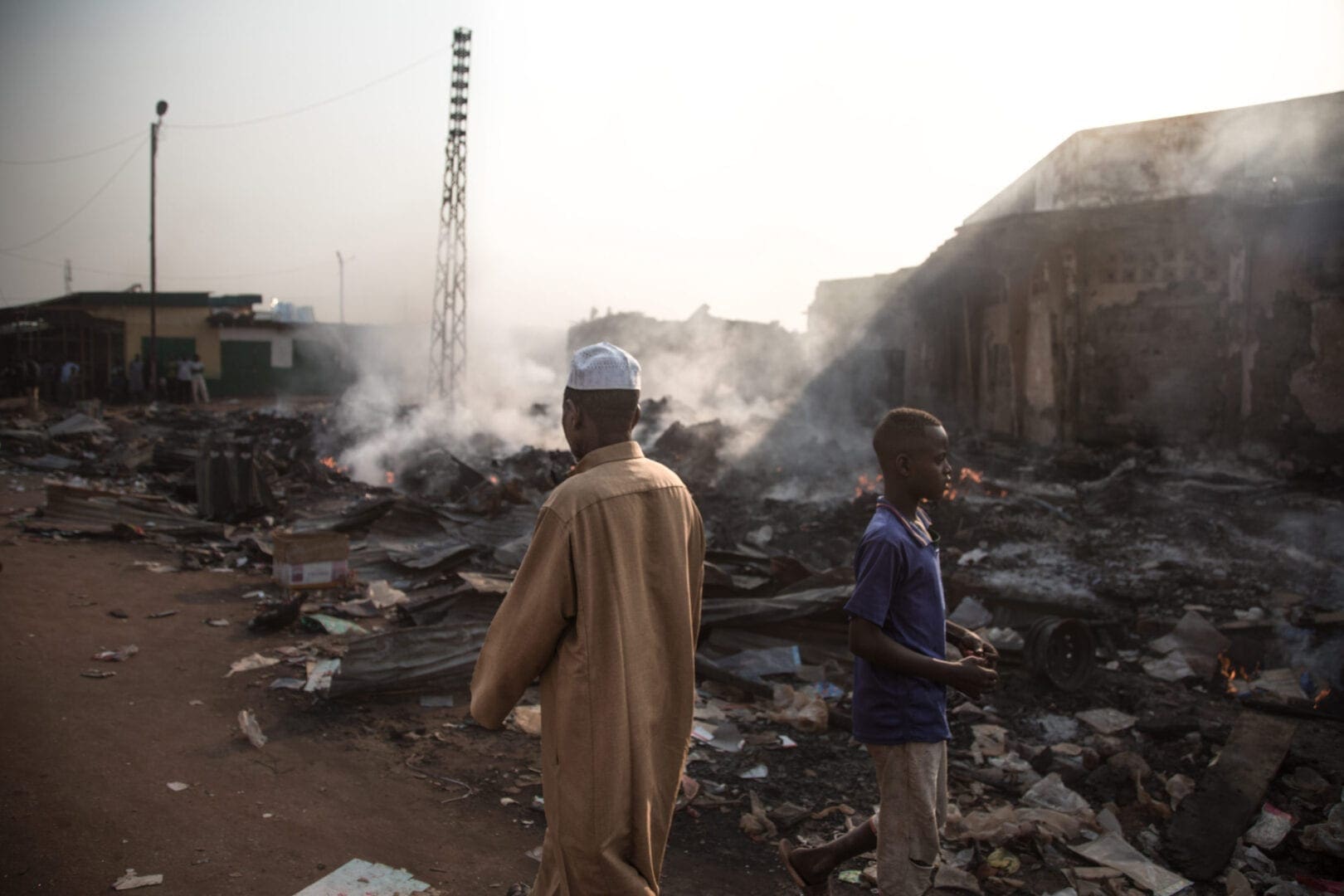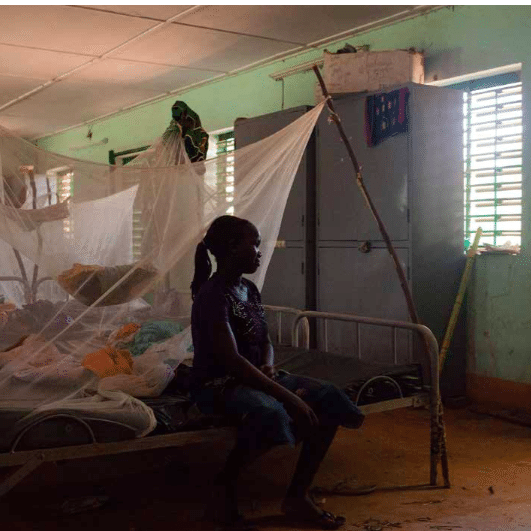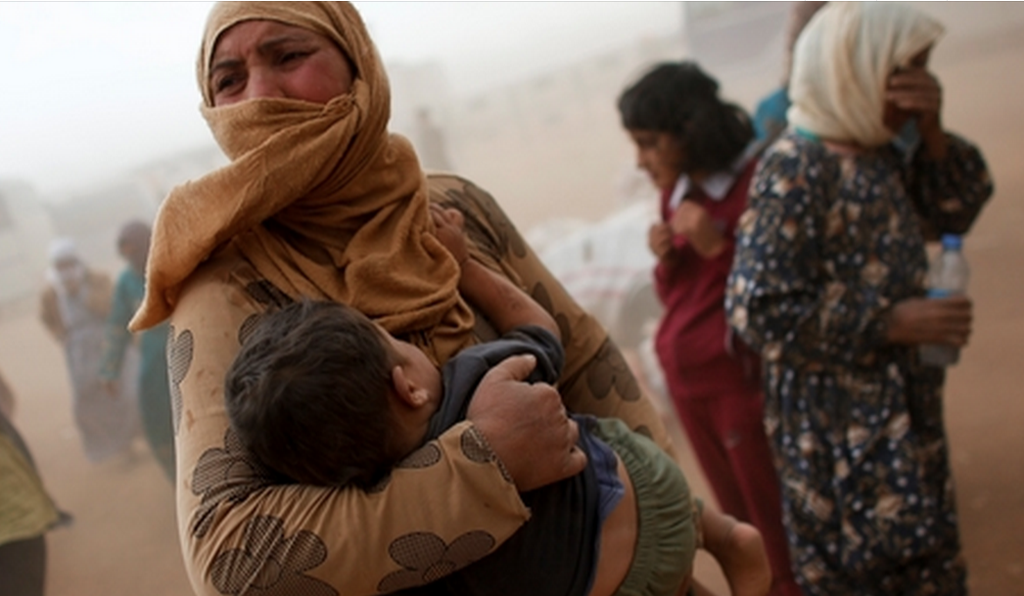BURKINA FASO 2021
Armed groups continued to launch deadly attacks against civilians, including children. The right to education and the right to health were compromised and cases of sexual violence were reported in the context of the conflict. Impunity for serious human rights violations and abuses remained pervasive. Authorities threatened press freedom.Background
President Kaboré, re-elected for a second term in late 2020, adopted a policy of dialogue and engagement with some of the armed groups in Burkina Faso’s northern region. Yet the armed conflict continued to rage. Widespread demonstrations followed a massacre of civilians in the town of Solhan in June, leading to the sacking of the defence minister. In December, following an attack against a gendarmerie post in Inata which led to protests over the security situation, the government resigned and a new prime minister was nominated. The humanitarian situation remained precarious; the number of internally displaced people (IDPs) rose from about 1 million in January to 1,368,000 in July, according to UNHCR, the UN refugee agency.Abuses by armed groups
The conflict that raged in northern and eastern Burkina Faso continued to affect the lives of civilians and hinder their activities. Some attacks by armed groups were carried out indiscriminately and therefore may constitute war crimes. The town of Mansila, Yagha province, remained under a blockade by the Group for the Support of Islam and Muslims (GSIM) throughout the year, leading to mass displacement and food insecurity among the population. In April, a civilian-military convoy documenting poaching in the Pama reserve, Kompienga province, was ambushed by an armed group. According to governmental sources, three foreign journalists and one Burkinabe national were killed. In May, an armed group killed 30 villagers during an attack in Kodyel, Komondyari province. In June, an unidentified armed group attacked positions of the Volunteers for the Defence of the Homeland, an auxiliary force to the military, at the entrance of the town of Solhan, Yagha province, before overrunning the town and indiscriminately killing residents. At least 132 people were killed in the attack, 40 wounded and 707 households displaced.1 In August, a military convoy between the towns of Arbinda and Dori, which was accompanied by civilians, was ambushed by an armed group. The attack led to the deaths of 65 people, including 59 civilians, according to governmental sources.Gender-based violence
In June, the NGO Doctors Without Borders reported a rise in sexual violence in the regions affected by the conflict. Alleged cases of sex being exchanged for food aid by local NGOs facilitating IDPs’ access to humanitarian aid were documented by the media in the city of Kaya, Sanmatenga province, the province hosting the largest number of IDPs in Burkina Faso.Children’s rights
Dozens of children were killed in attacks by armed groups against villages and towns. UNICEF reported that at least 20 children were killed during the attack on the town of Solhan in June, and hundreds were displaced with their families. Armed groups including GSIM, and the Islamic State in the Greater Sahara (ISGS) continued to recruit and use children to participate in hostilities, in violation of international humanitarian law.Right to education
Armed groups including GSIM and ISGS continued to prohibit so-called “Western” education in Burkina Faso, while threats and violence continued to deter teachers from remaining in their official postings. In March, 323 students were forced to flee their school following attacks by armed groups in the Boucle du Mouhoun region. Between 21 and 28 June, eight schools were attacked by armed groups in Manni department, Gnagna province. School materials were stolen, and property destroyed. Since the beginning of the conflict, more than 2,682 schools had been closed. By May, 304,564 students were affected by these closures (148,046 of whom were girls) along with 12,480 teachers (4,568 of whom were women). The government, with the support of UNICEF, developed alternative education models such as teaching via radio, benefiting 647,081 schoolchildren during the year.Right to truth, justice and reparation
In May, the government established a new military unit, the Special Forces, whose mandate included “counterterrorism operations”, among other tasks. However, a statute passed in June covering its legal position states that Special Forces cannot be pursued before the courts for any actions taken during their operations. This immunity clause violates the rights of victims to justice and reparation. In July, the French Council of State assented to the extradition of François Compaoré, the brother of former Burkinabe president Blaise Compaoré, to Burkina Faso, where he was sought for incitement to murder in relation to the death of investigative journalist Norbert Zongo in 1998. This decision was suspended by the European Court of Human Rights in August, pending examination of the challenge to the decision made by François Compaoré. In August, the first trials for terrorism-related offences were held in the Ouagadougou Higher Court. Two members of the armed group Ansaroul Islam were sentenced to 20-year prison terms for “criminal association linked to a terrorist enterprise”, “illegal possession of weapons and munitions of war”, “complicity in terrorism” and “wilful destruction of property” for the attack on and destruction of a primary school in Bafina, Sanmatenga province, in 2018. They were also ordered to pay 4 million XOF (US$7,240) each in damages. At the end of the year, no significant progress had been made in the investigation into the unlawful killings of 50 people and the enforced disappearance of 66 others allegedly committed by the armed group Koglweogo in the village of Yirgou, Sanmatenga province, in January 2019.Freedom of expression
Authorities violated media freedom on several occasions and failed to protect journalists. In March, Ladji Bama, editor of the newspaper Le Courrier confidentiel, was ordered to pay damages of 2 million XOF (US$3,620), after a complaint filed by the ruling party in Burkina Faso for “defamation”. In November 2020, Ladji Bama’s car had been fired upon outside Dori. In a subsequent Facebook post, he had accused the ruling party of involvement in the attack before filing a complaint for “assassination attempt” against unnamed persons. At the end of the year, no judicial developments had been reported following this complaint. Following the attack against the town of Solhan in June, the Higher Communications Council suspended the Omega media group’s radio and TV programmes for five days for “misreporting” the attack after it claimed that IDPs from Solhan were ambushed on the road to Dori. In a letter, the Council also threatened Radio France Internationale with suspension for their coverage of the attack and the government’s response to it.Right to health
Burkina Faso launched a national Covid-19 vaccination campaign in June, but failed to meet its target of vaccinating 70% of the population, the coverage being just 1.6% by December. Access to vaccines in remote regions and IDP settlements was limited because of the conflict. According to the ICRC, access to health in the conflict-affected regions was hindered by health personnel leaving because of the violence.The Latest

Two people walk among the burning rubbles in the Koudoukou market, in the PK5 district in Bangui on December 26, 2019, after clashes erupted when traders took up arms to oppose taxes levied by militia groups. – At least 11 people were killed in fighting between militiamen and traders in a restive district of Bangui, the capital of the Central African Republic, two security officials and an imam said on December 26, 2019. The security sources said between 11 and 14 people died after clashes erupted late on December 25, 2019, while the imam, Awad Al Karim, said “16 bodies” had been brought to the local Ali Babolo mosque. (Photo by FLORENT VERGNES / AFP) (Photo by FLORENT VERGNES/AFP via Getty Images)
Press Release
Armed conflicts and state repression in Africa fuel cocktail of human rights violations
April 7, 2020 | abuses by armed groups

Report
Burkina Faso: Forced and early marriage puts thousands of girls at risk
April 22, 2016 | children’s rights

Press Release
Burkina Faso: Forced and early marriage puts thousands of girls at risk
April 22, 2016 | children’s rights









Press Release
Amnesty International’s Annual State of the World Report Slams Governments, Including the U.S., for Global Assault on Freedoms
February 22, 2016 | Child Marriage









Press Release
Your rights in jeopardy, global assault on freedoms, warns Amnesty International
February 18, 2016 | Child Marriage









Press Release
Devastating news of the deaths of Leila Alaoui and Mahamadi Ouédraogo
January 19, 2016









Press Release
Army must free detained leaders in Burkina Faso and avoid violent repression of protests
September 17, 2015 | Burkina Faso


